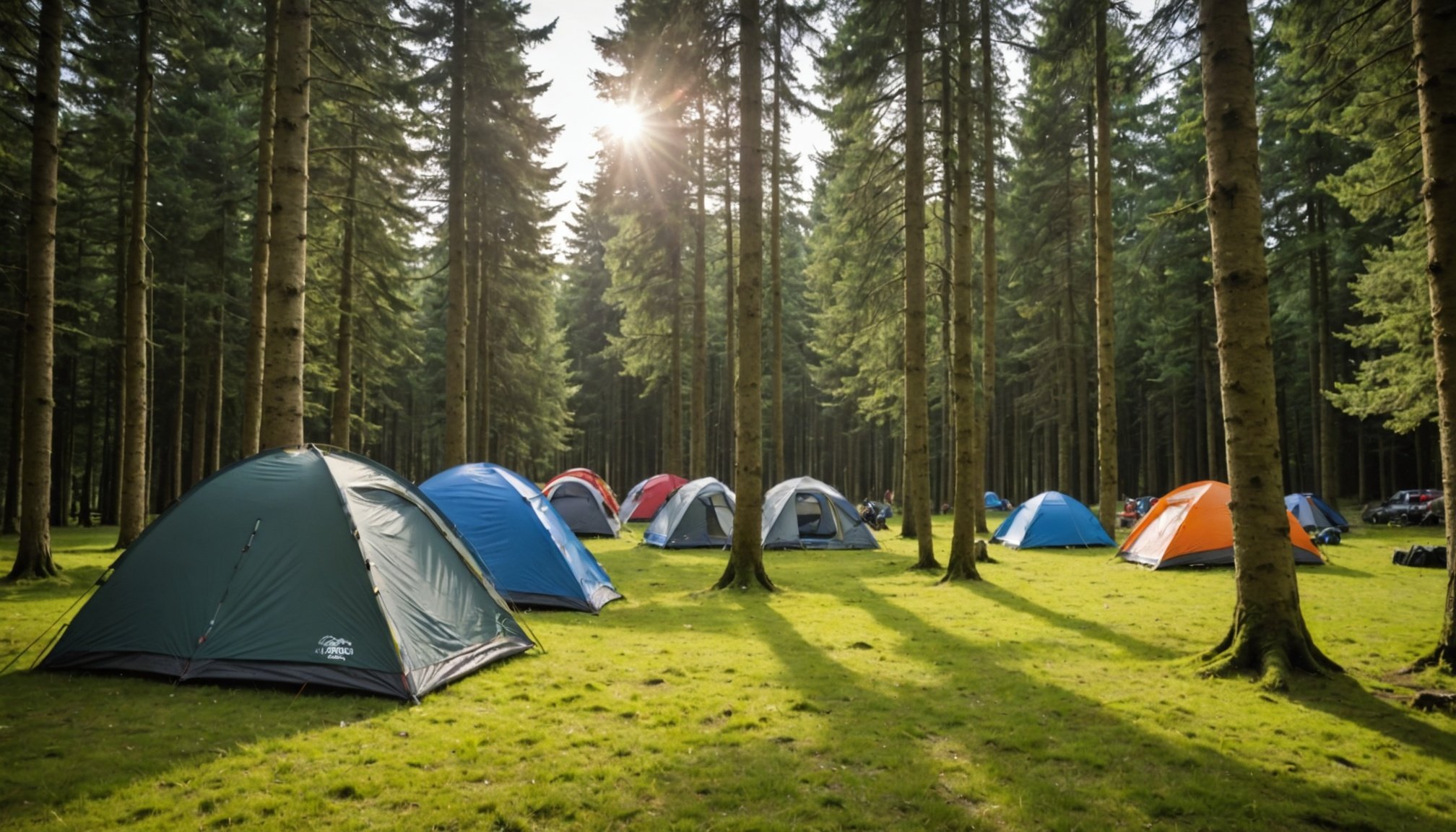Overview of UK Camping Challenges for First-Time Visitors
Understanding what lies ahead
Camping in the UK presents a unique set of challenges, especially for first-time campers unfamiliar with the local environment. One of the most significant UK camping challenges is the unpredictable weather. Unlike some regions where weather patterns are stable, the UK frequently experiences rapid changes, from sunshine to sudden rain showers. This variability means campers must be prepared with waterproof gear and flexible plans.
In parallel : What Are the Top Camping Spots in the UK to Visit This Summer?
Navigating the UK’s rural and remote areas also poses camping difficulties. Many first-time camping UK visitors underestimate the complexity of finding campsites amid winding country lanes, dense woodlands, or rugged moorlands. Unlike more straightforward trail systems elsewhere, rural UK navigation requires careful map reading and sometimes reliance on GPS devices compatible with UK terrain data.
Understanding campsite rules and local etiquette is another hurdle. UK campsites often have strict guidelines on noise, campfires, and waste disposal based on environmental regulations and local customs. First-time campers should familiarize themselves with these rules to enjoy a smooth experience and respect the local environment. Adhering to such etiquette fosters positive relationships with fellow campers and landowners, essential for a hassle-free trip.
Also read : Why Is the Popularity of Camping in the UK Surging?
Managing the UK’s Unpredictable Weather
When camping in the UK, preparing for unpredictable weather is essential to a comfortable stay. The key to thriving in UK camping weather is packing effective rain gear and warm, layered clothing. Waterproof jackets and trousers protect you against sudden downpours, while layers allow you to adjust quickly as the temperature fluctuates throughout the day and night.
Rapidly changing weather can turn a sunny morning into a wet afternoon, so it’s wise to check forecasts regularly and anticipate shifts. Having a reliable waterproof tent and covers for backpacks ensures your gear remains dry, safeguarding your essentials. Additionally, packing quick-drying fabrics and thermal underlayers helps maintain warmth without adding bulk.
Adapting your camping plans based on real-time weather updates is crucial. For example, scheduling outdoor activities during predicted dry windows can enhance your experience, while having alternative indoor or sheltered options ready prevents discomfort. By embracing flexible arrangements and ensuring you have the right weather preparation, you safeguard your trip against the UK’s famously capricious climate—a strategy every camper should prioritize for a safe and enjoyable adventure.
Local Wildlife Considerations
Understanding and respecting nature while camping
When camping in the UK, encountering local wildlife is common. Animals such as foxes, badgers, and various bird species may approach campsites, often drawn by food. To prevent unwanted visits from these curious creatures, secure food storage is essential. Using airtight containers or hanging food bags out of reach can drastically reduce the chances of attracting animals. This also helps avoid encounters that could disturb both campers and wildlife.
Many UK camping areas are home to protected species like bats and certain bird species. Recognising these animals and respecting their habitats is crucial. For example, avoid disturbing nesting areas or approaching animals too closely. Campers should familiarize themselves with species commonly found in their camping location to maintain ethical and legal standards.
Animal encounters can be enjoyable for campers who take the right precautions. Proper storage of food not only safeguards your gear but also helps preserve local ecosystems. Always dispose of food waste responsibly and keep the campsite clean. This balance lets you appreciate the UK’s fascinating wildlife while camping safely and sustainably.
Navigating Campsites and Landscapes
Navigating UK campsites and rural landscapes requires more than just a good sense of direction. Utilizing UK campsite navigation tools like Ordnance Survey maps or digital apps tailored for the UK terrain ensures you stay on track, especially in rural settings where GPS signals may falter. These maps offer detailed information on footpaths, terrain types, and landmarks essential for safe travel.
First-time visitors often make critical errors, such as relying solely on smartphone GPS without a backup map or misunderstanding rural signage. For example, confusing private land boundaries with public paths can lead to trespassing accidents. Awareness of public rights of way is key to lawful and respectful exploration. These rights of way, including footpaths and bridleways, allow walkers legal access across countryside lands, but they can be easy to miss if you’re unfamiliar with local markers.
To avoid common pitfalls, it’s wise to prepare by studying the area’s maps before departure and carrying both digital and physical copies. This dual approach enhances safety and confidence when facing the inevitable rural camping challenges like uneven trails or limited mobile coverage. Understanding these navigation essentials transforms your camping experience from uncertain to seamless, ensuring you enjoy the rich landscapes without surprises.
Understanding Campsite Rules and Etiquette
Respecting campsite regulations UK is essential for an enjoyable stay. Most campsites enforce strict rules on fires, often requiring use of designated fire pits or prohibiting open flames altogether. This ensures safety and minimizes environmental impact. Quiet hours camping UK typically begin around 10 pm and last until early morning. Keeping noise to a minimum during these times helps maintain a peaceful atmosphere for all guests.
Waste disposal and recycling form a crucial part of UK camping etiquette. Campsites usually provide bins for sorting rubbish, recyclables, and sometimes compostables. Properly disposing of waste not only keeps sites tidy but also protects local wildlife and habitats. Campers are encouraged to pack out what they bring in if facilities are limited.
Respecting fellow campers helps maintain campsite harmony. This means being considerate in shared spaces, such as toilets and communal areas, and keeping dogs under control. Small gestures, like greeting neighbors and following established rules, contribute to a positive environment. By understanding and adhering to UK camping etiquette, everyone can enjoy a safer, cleaner, and more pleasant outdoor experience.
Essential Gear and Packing Tips for UK Camping
When preparing for UK camping, packing the right gear is crucial due to its often unpredictable weather. Essential UK camping gear starts with a reliable tent designed to withstand frequent rain and wind. Opt for waterproof tents with sturdy poles to ensure comfort and protection. Sleeping bags rated for damp, cool conditions are also recommended to keep you warm overnight.
In addition, packing waterproof clothing is a smart choice. A breathable waterproof jacket and trousers help you stay dry without overheating. Layering is key: thermal base layers combined with fleece or wool mid-layers provide flexible warmth in variable climates. Don’t forget a wide-brimmed hat or woolly beanie, depending on the season.
To avoid common oversights, create a packing checklist that includes essentials like a headlamp, camping stove, reusable water bottle, and first aid kit. Double-check you have extra batteries, strong waterproof bags for your electronics, and sturdy walking boots suitable for muddy terrains. Ensuring your equipment meets these recommendations makes your trip safer and more enjoyable, no matter what the UK weather throws at you.
Practical Insights from Local and Traveller Experiences
Seasoned campers across the UK emphasize the importance of planning for unpredictable weather. A common mistake is underestimating how quickly conditions can change, so packing waterproof gear and layered clothing is essential. Experienced campers recommend bringing a durable, weatherproof tent suited for wet British climates to avoid discomfort and damage.
Another frequent issue newcomers face is arriving at campsites without prior bookings, especially during peak seasons. Booking early guarantees a spot and often better pitches. Understanding the local camping culture means respecting quiet hours and communal spaces, which fosters a friendly atmosphere and smoother interactions with fellow campers.
Many locals suggest getting familiar with the terrain before setting out—whether in the Lake District or Cornwall, the landscape can vary immensely, influencing gear and activities. Also, bring insect repellent despite the UK’s reputation for fewer bugs; midges and mosquitoes can surprise unwary campers.
Learning from these personal camping experiences in the UK helps first-timers avoid pitfalls such as inadequate preparation or misjudging campsite rules. These tips create a more enjoyable and stress-free adventure. Awareness of common mistakes and knowledge-sharing are invaluable for embracing the unique charm of UK camping.





